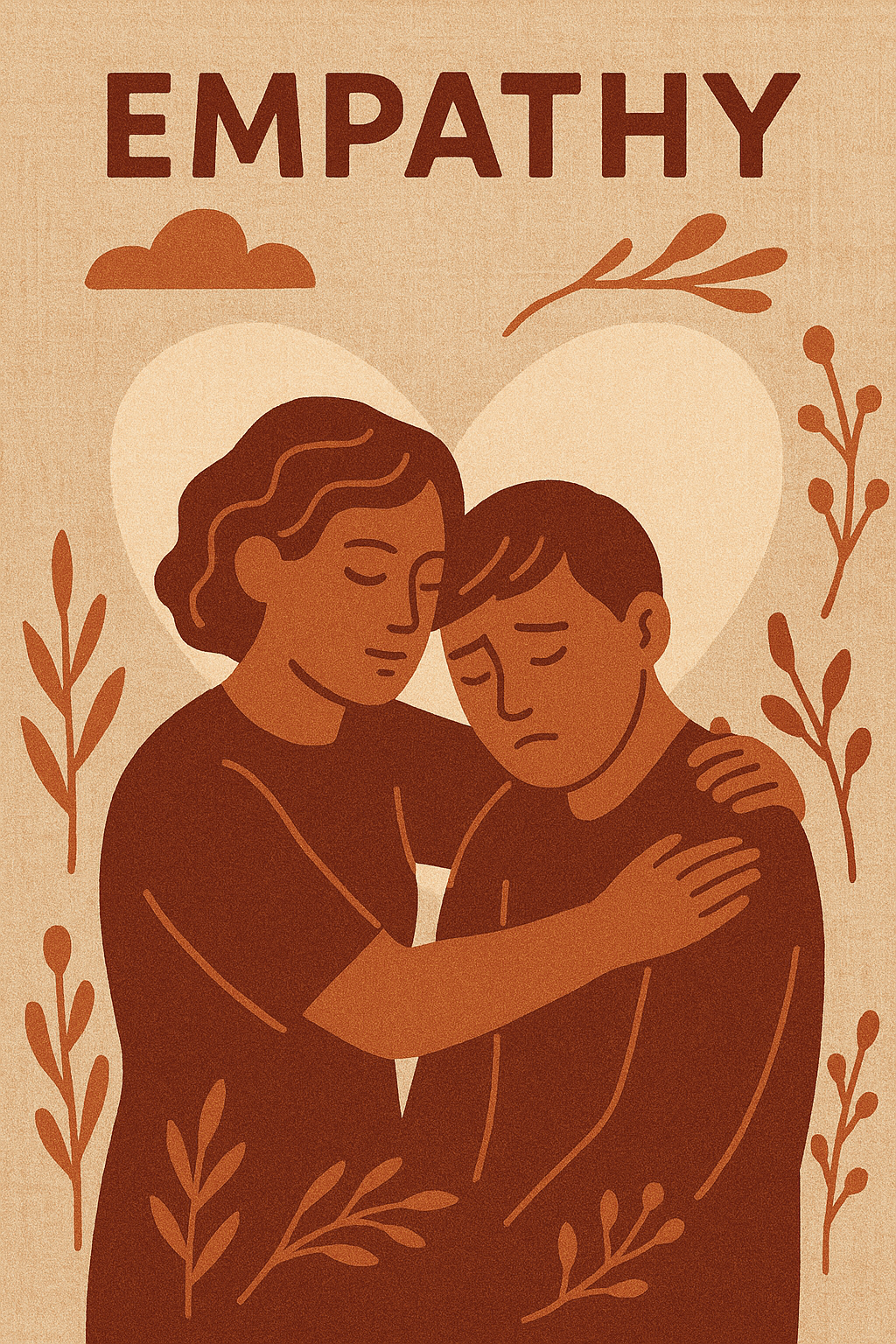


Exploring Empathy: An Invitation to Connection
By Brent “Woody” Harris, LPC, CPCS — Dafos Therapy
Part 1 of the “Empathy & Compassion” Series
“Empathy has become a strangely controversial word.”
In some corners of the media, empathy has been dismissed as part of the so-called “woke mind virus.” One commentator even claimed it doesn’t exist at all.
As a therapist, I find that both fascinating and troubling. Empathy has long been considered the backbone of therapy—the foundation of human connection.
Over the next few blogs, I’ll explore what empathy and compassion really mean—philosophically, psychologically, and experientially.
Today’s post begins from a more personal and theoretical perspective. Later, we’ll examine research and cross-disciplinary findings. But for now, I want to reflect on empathy as a lived experience—something felt, not just defined.
Our daily understanding of these words varies, so let’s start with how I use them:
Some view empathy as a kind of projection—imagining another’s pain by recalling our own. But as a therapist, I often encounter suffering I’ve never personally known. This makes me question whether empathy is simply projection or something deeper.
Perhaps empathy is about recognizing a universal thread of pain, shared across human experience—a resonance that arises from the common fabric of being alive.
“I think of empathy as attunement—a resonance between beings.”
Rather than projection, I experience empathy as attunement. I picture tuning forks vibrating at the same frequency. That, to me, is the essence of therapeutic resonance.
In that space, I’m not imagining myself in my client’s place. I’m listening so deeply that we enter a kind of shared vibration.
Martin Buber described this as the I/Thou relationship—a meeting of two presences where both are fully seen, without objectification or defense. It’s a moment of deep recognition, where empathy dissolves the illusion of separateness.
This question reveals a deeper philosophical divide.
If we see the world as made up of independent objects—each self-contained—then empathy can only ever be a mirror of our own feelings. That’s the Newtonian-Cartesian view: a world of isolated entities interacting from a distance.
But what if separation is an illusion?
A quantum or transpersonal understanding of reality suggests that we rise and fall together, part of the same field of consciousness. Empathy, then, becomes an act of remembering that shared origin—a recognition that we are not, and never have been, entirely separate.
In traditional psychotherapy, we often operate within an I-here / you-there framework. That stance can make empathy seem like a simulation—a best guess at another’s experience.
But from a transpersonal lens, empathy becomes a practice of letting go: loosening the ego’s boundaries and attuning to what is truly present.
This takes patience, stillness, and self-knowledge. It means learning to quiet our automatic narratives, our theoretical assumptions, and the personal noise that crowds our awareness.
At times in session, I’ve felt that connection as something tangible—an unseen thread humming between two people. Other times, I spend the hour searching for it, sifting through distraction and internal static to find resonance again.
This is the stance I bring as I begin to explore current research on emotion, compassion, and empathy. I’ll be drawing from cognitive psychology, biology, spirituality, and philosophy—listening with curiosity, not certainty.
I’m open to arguments that empathy may be illusory. Yet, I can’t deny that I’ve felt it: a profound, quiet recognition of shared humanity.
I invite you to join me on this exploration. Share your thoughts in the comments:
Let’s learn together—and in the process, build our Compassionate Rebellion.